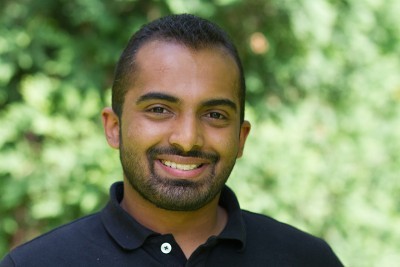
Amer Abdulghafoor was two years into his biology pre-med studies at U-D Mercy when he realized that he was more interested in exploring social justice issues related to the field of medicine.
“The social justice philosophy is what drew me in,” said Abdulghafoor. “I think that sometimes that can get lost in medicine, but it’s the foundation of social work. Once I made the switch, I knew it was the right decision for me.”
Attending U-M’s MSW program was also the right decision. “It was my #1 choice. Not only was I aware that the MSW program was top-ranked, I also wanted an internship position within the U-M Health System, because it’s nationally-recognized as a leading research and patient care organization. There are resources and opportunities here that you can’t find anywhere else or in any other program.”
He was accepted for a field placement at CS Mott Children’s Hospital, where he’s developing his patient advocate skills as a graduate student hospital intern in the outpatient pediatric neurology and neurosurgery unit. Abdulghafoor works with patients whose success in school may be impacted by disability, illness or disorders that require treatment or hospitalization, limiting access to learning in the educational setting. He also assists the medical team by completing biopsychosocial assessments on patients and their families, and
“Every child deserves to succeed in school, but so often a diagnosis or treatment plan makes it difficult to keep up with the pace in the classroom,” said Abdulghafoor. “I serve as a liaison between families and schools, meeting with both parties to identify specific issues and concerns.”
After graduation Abdulghafoor is headed to Capetown, South Africa to volunteer at a residential center for disabled youth. He says his field placement responsibilities have helped prepare him for the challenges he’ll deal with on-the-ground, which include working with children who suffer from moderate to severe levels of physical and/or mental disability including Down syndrome, cerebral palsy and autism.
“When I decided to study social work instead of biology and pre-med, I wasn’t giving up on wanting to help medical patients. Social work is still a helping profession, just in a very different way than medicine. Medical social work is the best way for me to integrate my interests in science, medicine and working with underserved populations who need it the most.”